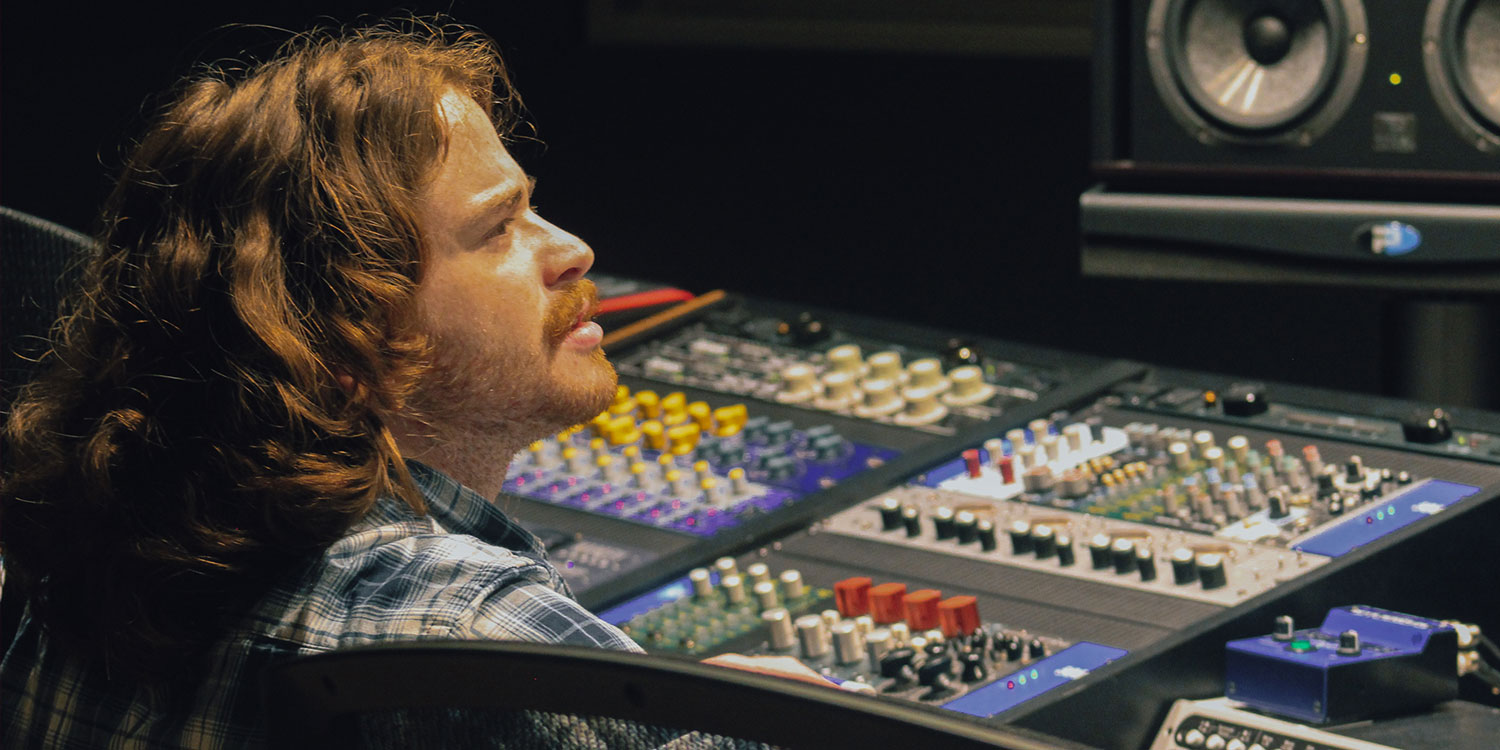For Capital senior Paul Kramer ’26, music technology isn’t just about microphones, editing software, and acoustics, it’s about elevating voices, especially the voices of those closest to him. His senior project, a full studio album for the chamber ensemble Luces Stellarum, blends artistry, sibling collaboration, and professional mentorship to create a high-level recording experience.
The eight-member choir, featuring current and former Capital vocalists, including Paul’s brother, vocal performance major Max Kramer ’26, was originally created to attend The King’s Singers Summer School at Princeton University in 2024.
There, the group met Patrick Dunachie, a member of The King's Singers from King's College in London, who quickly recognized their potential.
“Luces Stellarum really stand out for their dedication, ambition, and drive. They have a keen ear for detail, and hold themselves to such high standards, despite being students and recent graduates,” Dunachie said.
“At times I was having to encourage them not to be too perfectionist, which is very much the opposite of what producers normally have to say! They make a beautiful sound, and it was a privilege also to work with Paul, who expertly captured that sound in crystal clarity and who will be doing the hard work of editing it all together in the coming months.”
In October 2025, the opportunity for Luces Stellarum to record an album produced by Dunachie became a reality. As the recording engineer, Paul recorded the ensemble in Studio F on Capital’s campus. As producer, Dunachie worked as a guide between performance and technology, encouraging bold musical decisions while ensuring usable recordings.
“The role of the producer is quite a varied one: it requires me to act as a kind of conduit between the artistry and the technology. The ultimate aim is to make sure that for every piece of music, there is plenty of good, usable recorded material which shows the group off to their very best,” Dunachie said. “Luces Stellarum really stand out for their dedication, ambition, and drive.”
The group’s unique collaborative structure adds another layer of musical excellence. Each member carries full responsibility for their part.
“I have always been very passionate about chamber music. It's the peak form of responsibility of a musician. Most of the time you are the only person singing your part, and everyone else in the group is relying on you to be present, sing confidently, and sing beautifully,” Max said.
“I love the collaboration of our group as well. In our founding, we decided that we would be a choir without a designated director or conductor — quite unusual for any choir. This creates the opportunity for equal collaboration and ideas across the ensemble, something I have grown to love.”
Max has loved watching his brother take the lead on the technical side.
“My favorite part was knowing that I could rely on him to do his job. When you're out in the professional world, we experience a lot of hoping that every member of a project will pull their weight and get the job done, but when working with my brother, I know his work and I know that he will do exactly what is needed and beyond,” Max said. “Paul and I have an incredibly close relationship, and I love being able to collaborate with him and do things that we love to do, together.”
For Paul, the project is a culmination of everything he has learned in the Music Technology program, live sound engineering, studio recording, and audio post-production. Once tracking is complete, he will use Altiverb, a convolution reverb software, to digitally recreate the sound of Capital’s Gloria Dei Chapel, capturing the warmth and resonance of a sacred performance space.
“This is kind of the first time I’m doing a project like this,” Paul said. “I’m excited to see what I can do with it and to be working with friends and my brother. I look at it as very much like a support type of role, and that is what I'm very comfortable in. I can make them sound the best they can with my work.”
Balancing the schedules of eight musicians, mixing student responsibilities, studio manager duties, rehearsals, and performances has required creativity and patience, but Paul is confident the final project will showcase the ensemble at their finest.
As he looks toward graduation, Paul said he is open to many audio career paths, from live sound to studio engineering and media audio. But one thing is certain: this project marks the beginning of something special.
“I'm very glad that I'm kind of ending my career at Capital with this and getting to support some of my best friends and my brother in what they do,” Paul said. “It means a lot to be working together on either side of the glass, but I’m especially proud to be behind it.”
For more information about Music Technology at Capital, visit https://www.capital.edu/academics/majors-and-minors/music-technology/.
